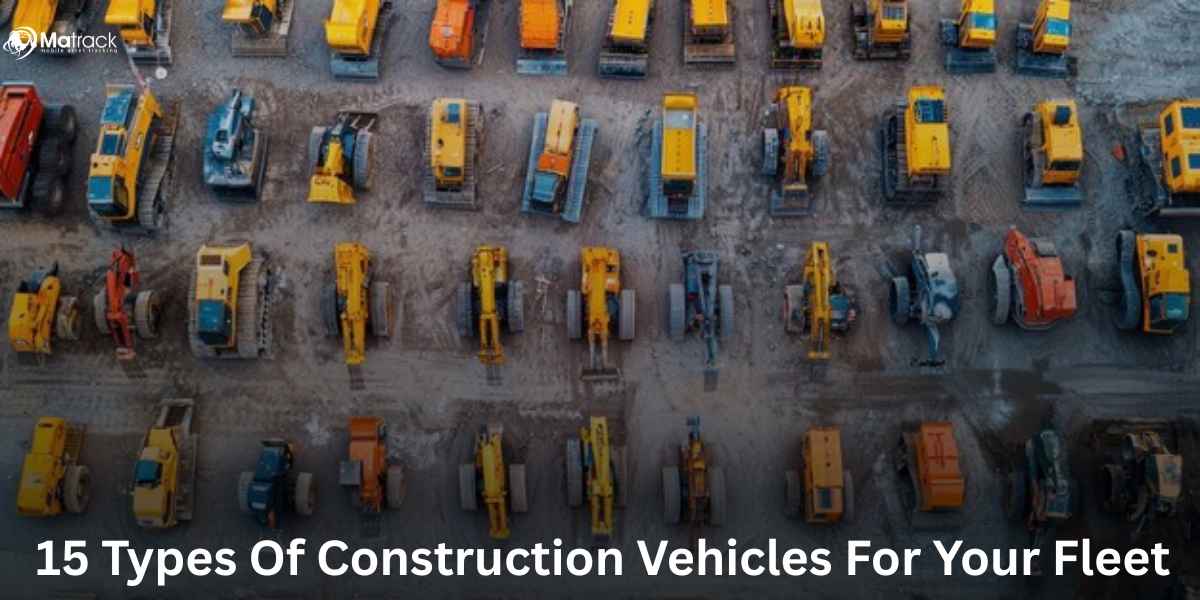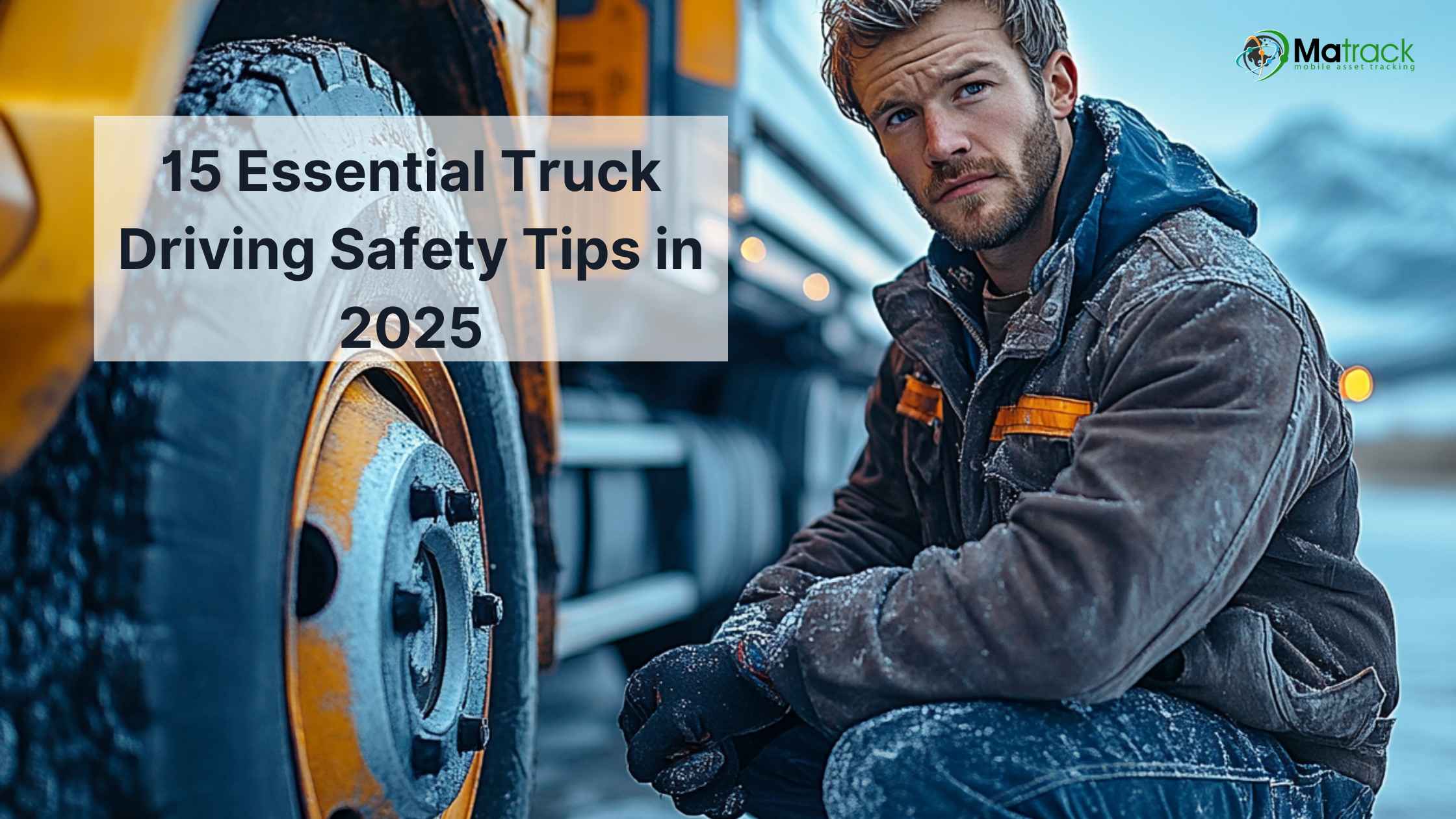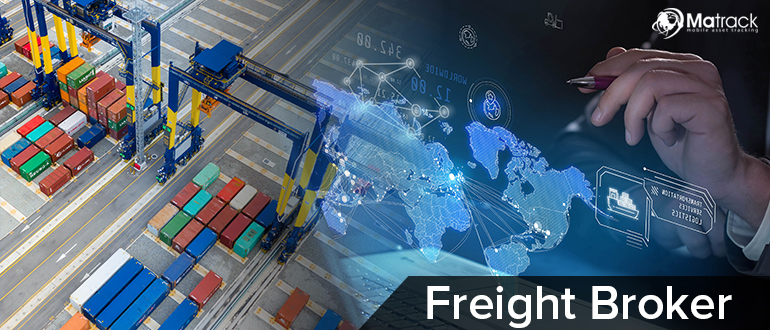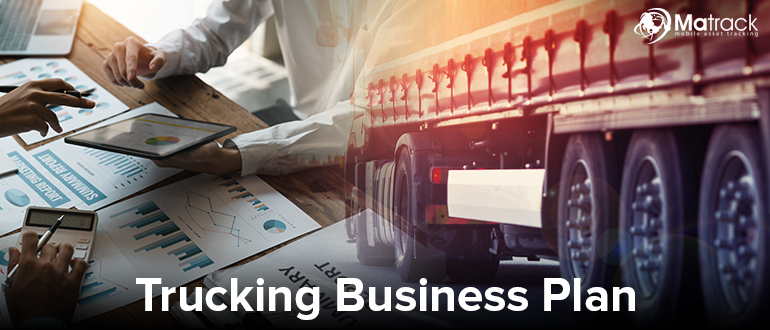Key Takeaways:
- Construction vehicles are heavy equipment built for digging, lifting, moving materials, and supporting construction work.
- Each type of construction vehicle serves a specific purpose, and choosing the right mix ensures efficient project operations.
- Safe transport of construction vehicles depends on selecting suitable trailers, securing proper permits, and planning routes.
- Managing a construction fleet is easier with GPS tracking, fuel cards, ELD devices, and dash cams that improve control and safety.
What Are Construction Vehicles Called?
Construction vehicles are commonly called heavy equipment or construction machinery. These machines are essential on job sites because they handle tasks like digging, lifting, and moving materials.
These vehicles are built for strength and durability to perform in tough conditions. From building roads to digging foundations, they help complete projects faster and more efficiently.
Each type of construction vehicle is designed for a specific purpose. This makes it important to understand the different types of construction vehicles and how they fit into your fleet.
Top 15 Types Of Construction Vehicles
1. Excavators
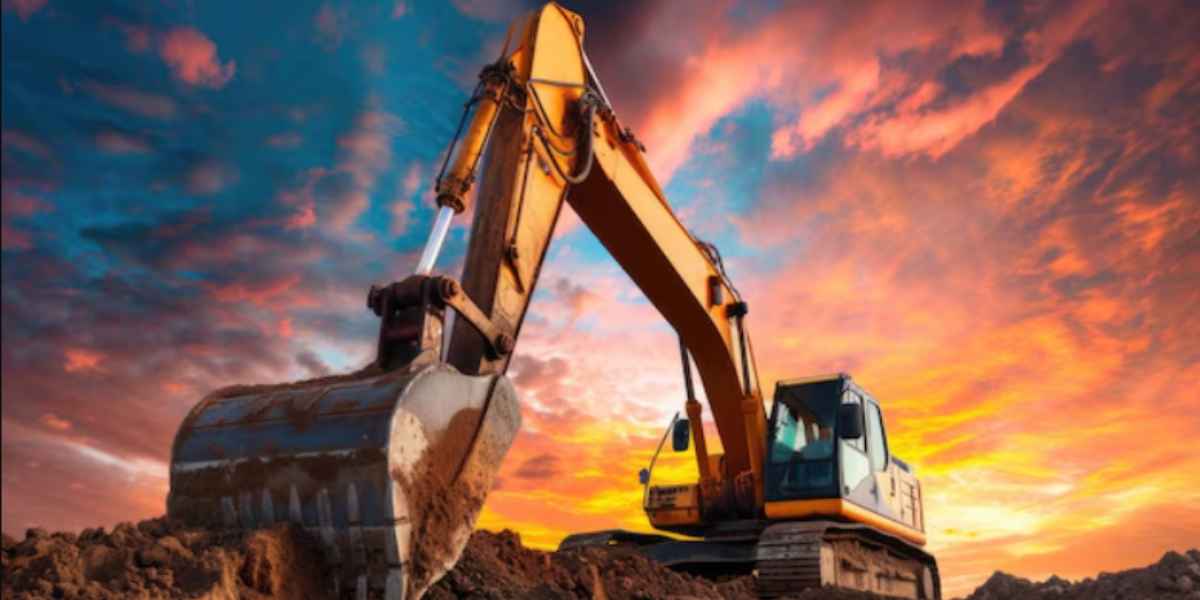
Excavators are essential for digging and lifting heavy materials on construction sites. The long arm and bucket help handle soil, rocks, and debris with precision.
A rotating cab allows smooth operation without repositioning the machine. Excavators deliver high efficiency in both large open areas and tight spaces.
Key Features
- Long arm with bucket
- 360-degree cab rotation
- Track or wheel base
Applications
- Digging foundations
- Removing debris
- Large-scale landscaping
Cost
Excavators cost between $100,000 and $500,000.
Top Brands
Caterpillar, Komatsu, Hitachi
2. Bulldozers
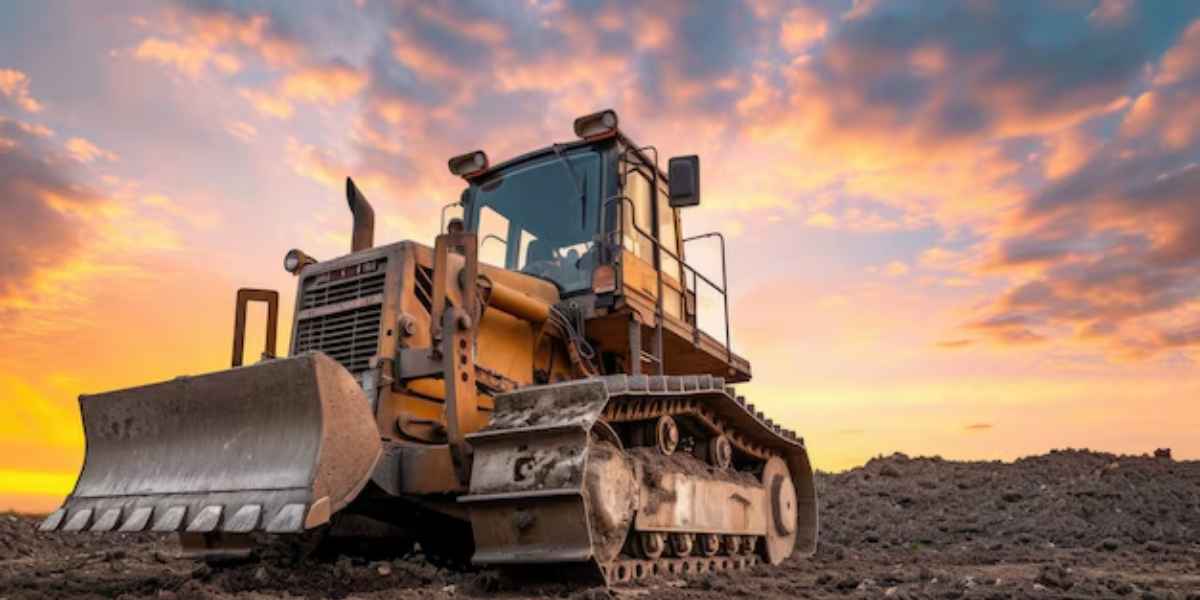
Bulldozers move large volumes of soil, sand, or rubble using a strong front blade. These machines are built for clearing land and leveling ground with speed.
High stability makes bulldozers reliable on rough or uneven surfaces. This strength is critical for site preparation and heavy earthmoving.
Key Features
- Wide, heavy front blade
- Durable tracks
- Powerful engine
Applications
- Land clearing
- Surface grading
- Demolition support
Cost
Bulldozers cost between $150,000 and $700,000.
Top Brands
Caterpillar, Komatsu, John Deere
3. Backhoe Loaders
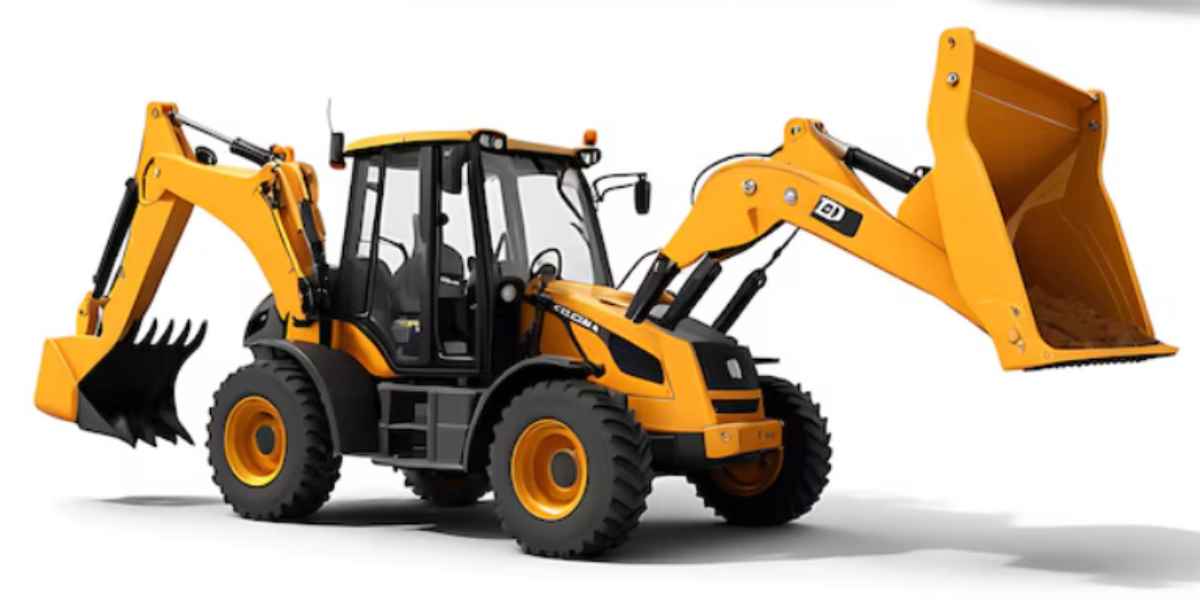
A backhoe loader combines a front bucket and a rear digging arm in one machine. This design allows both material handling and excavation without switching equipment.
Compact size enables use in urban or restricted spaces. The dual function makes backhoe loaders highly versatile for utility work.
Key Features
- Front loader bucket
- Rear backhoe arm
- Compact frame
Applications
- Small trenching
- Material loading
- Utility installation
Cost
Backhoe loaders cost between $50,000 and $150,000.
Top Brands
JCB, Caterpillar, CASE
4. Skid Steer Loaders
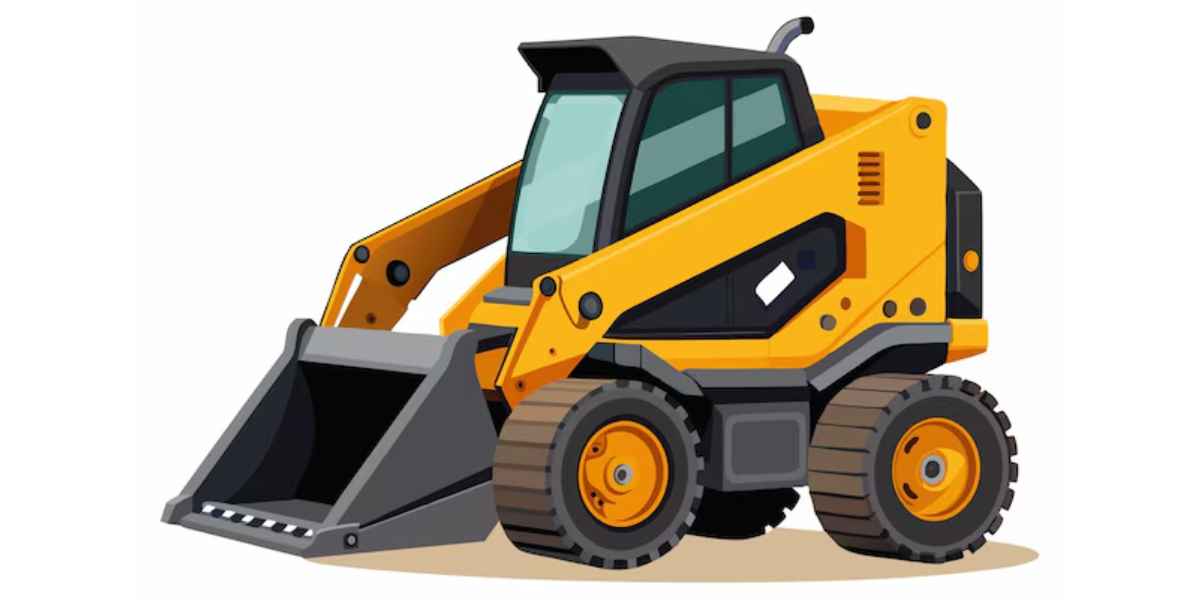
A skid steer loader is a compact machine that moves and lifts materials on tight job sites. The lift arms work with a range of attachments to handle different tasks.
Small size allows easy maneuvering where larger machines cannot fit. Skid steer loaders are useful for site cleanup and light grading.
Key Features
- Small, compact build
- Quick attachment system
- Four-wheel drive
Applications
- Cleanup tasks
- Small grading work
- Material transport
Cost
Skid steer loaders cost between $30,000 and $80,000.
Top Brands
Bobcat, Caterpillar, John Deere
5. Wheel Loaders
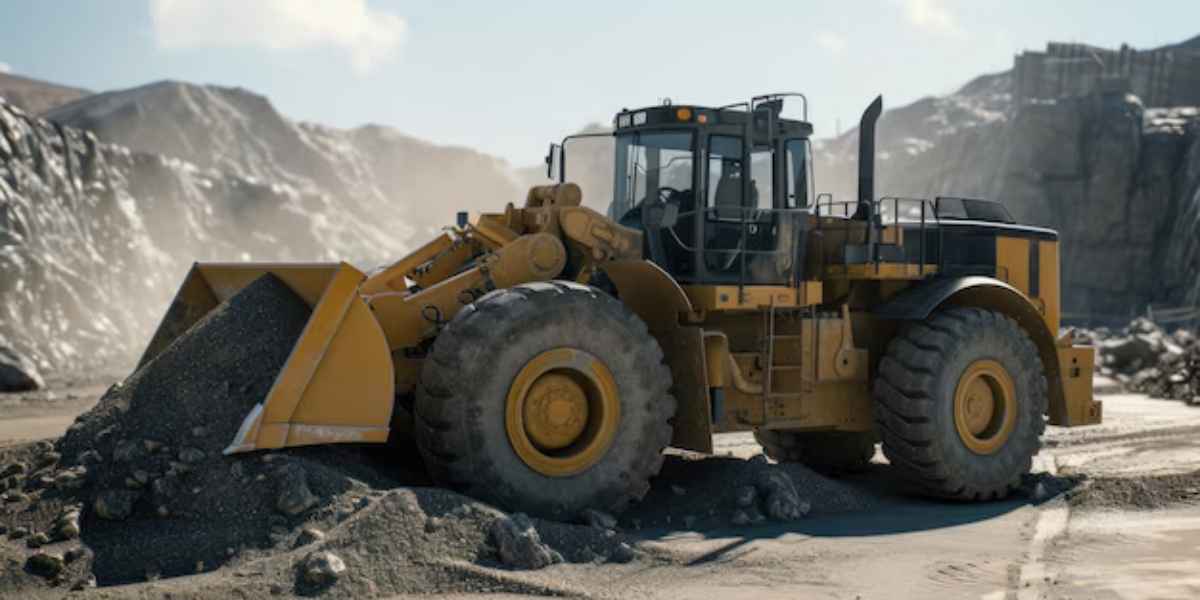
Wheel loaders use a large bucket to scoop and carry loose materials. Strong wheels provide good speed and mobility on large sites.
These machines handle bulk material quickly. Wheel loaders are common where fast loading or stockpiling is needed.
Key Features
- Large front bucket
- High lifting strength
- Strong wheeled mobility
Applications
- Stockpiling
- Truck loading
- Bulk material transport
Cost
Wheel loaders cost between $100,000 and $300,000.
Top Brands
Volvo, Caterpillar, Komatsu
6. Dump Trucks
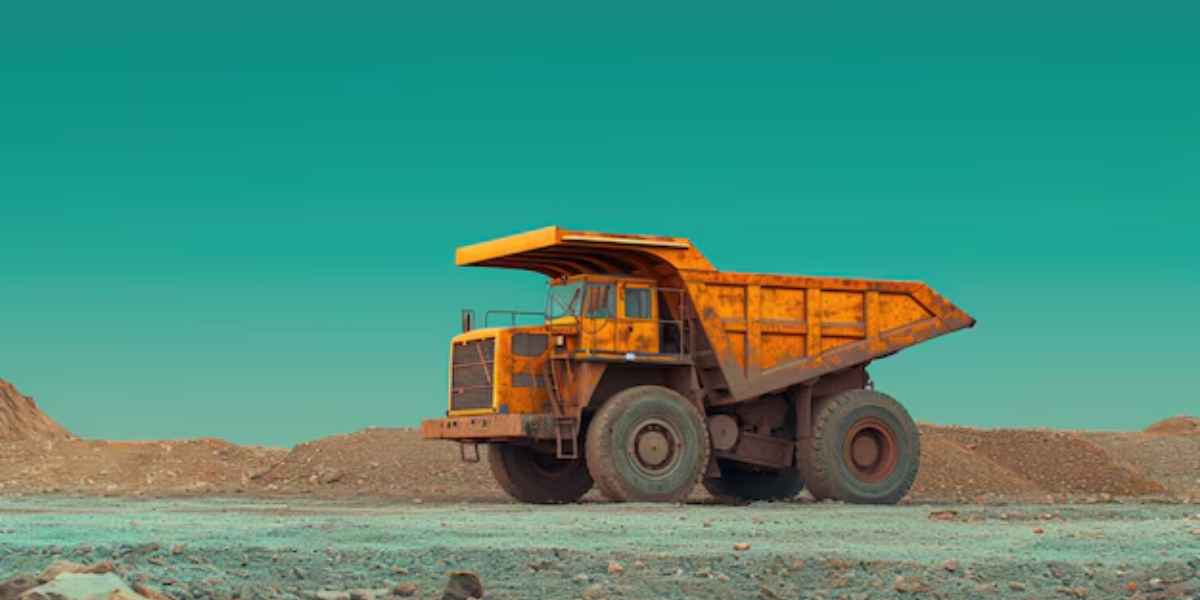
Dump trucks transport loose materials across sites or off-site. The rear bed tilts to unload materials fast and safely.
Large capacity helps reduce trips and save time. Dump trucks are vital for moving debris, sand, or aggregates.
Key Features
- Large tilting bed
- Hydraulic lift system
- High load capacity
Applications
- Debris hauling
- Aggregate transport
- Earthmoving
Cost
Dump trucks cost between $100,000 and $250,000.
Top Brands
Kenworth, Mack, Volvo
7. Articulated Haulers
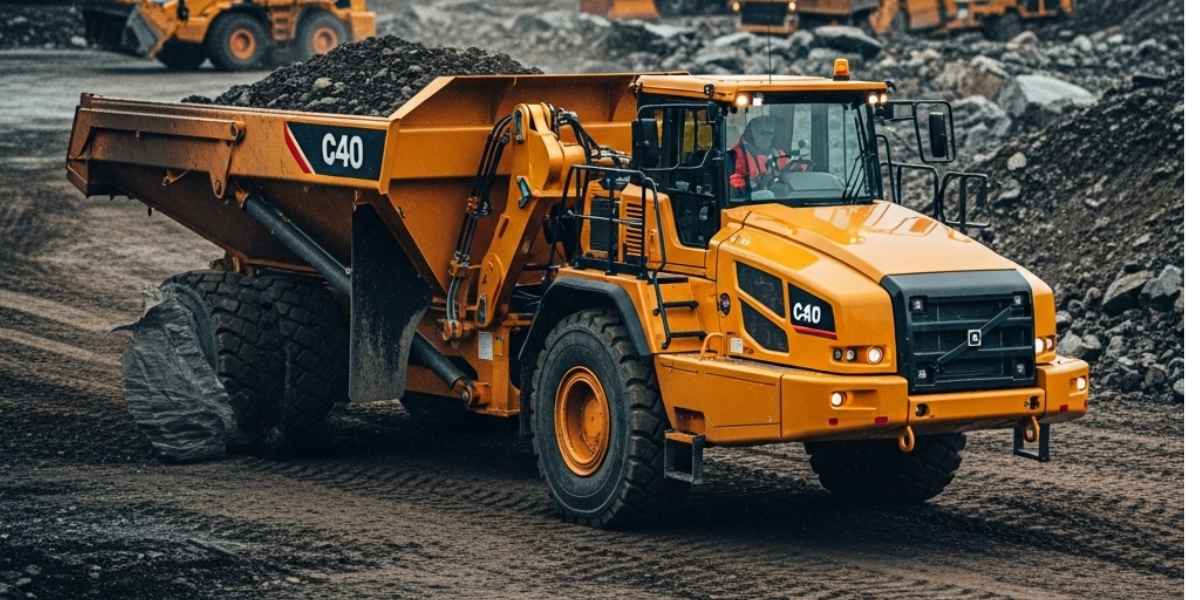
An articulated hauler is designed to carry heavy loads on rough terrain. The pivot joint in the frame provides flexibility on uneven ground.
These trucks are often used in mining or large-scale earthmoving. The design allows hauling in hard-to-reach areas.
Key Features
- Pivoting frame
- All-wheel drive
- High load capacity
Applications
- Mining
- Large earthworks
- Off-road material transport
Cost
Articulated haulers cost between $200,000 and $600,000.
Top Brands
Volvo, Caterpillar, Bell
8. Graders
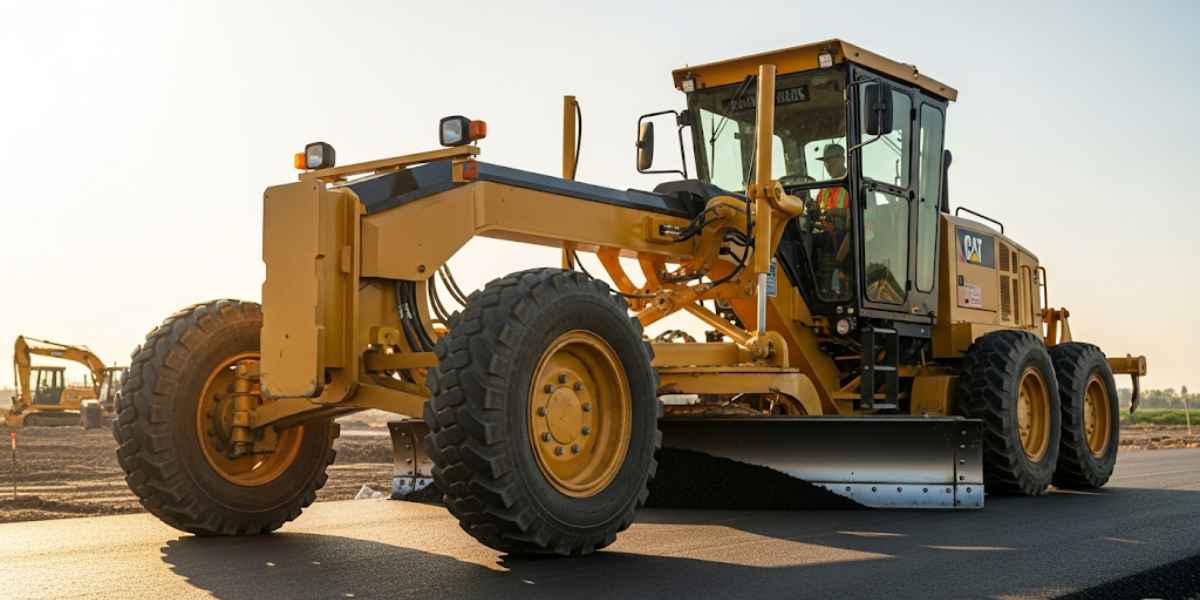
Graders create flat surfaces using a long, adjustable blade. They are used to prepare sites or shape road bases.
Precise control helps achieve smooth, even layers. Graders are important for final leveling work on large projects.
Key Features
- Long adjustable blade
- Fine steering control
- Stable wheelbase
Applications
- Road base work
- Site leveling
- Ditch shaping
Cost
Graders cost between $150,000 and $500,000.
Top Brands
Caterpillar, John Deere, Komatsu
9. Scrapers
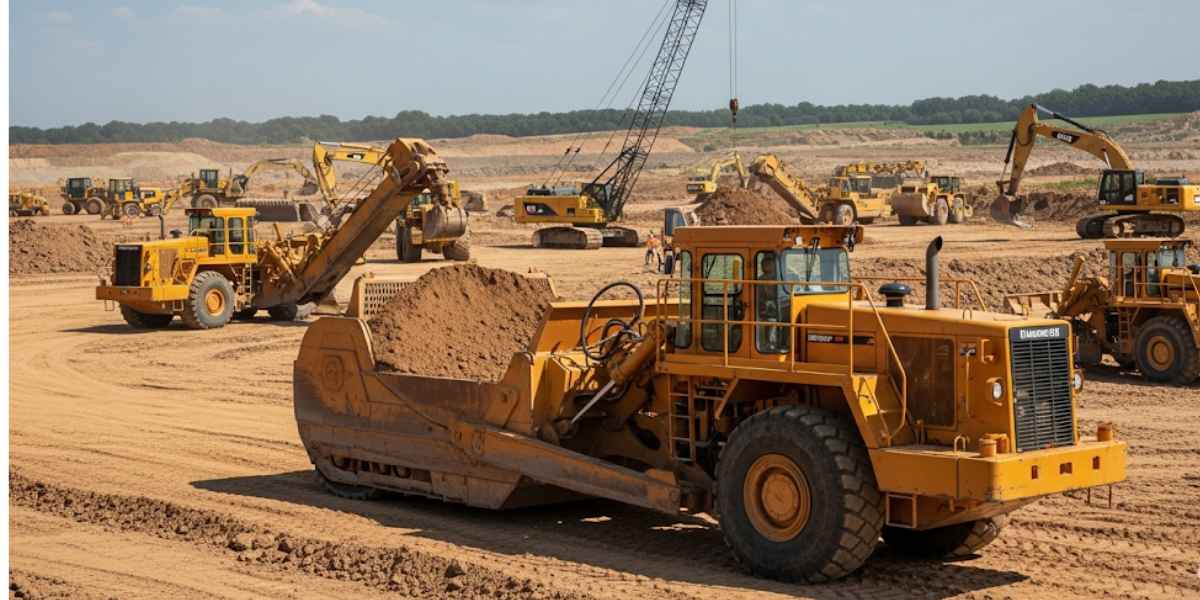
Scrapers cut soil, collect it in a bowl, and carry it to another spot for dumping. This design speeds up large cut-and-fill operations.
Fast travel and large capacity make scrapers ideal for bulk earthmoving. These machines are key on big site prep jobs.
Key Features
- Cutting blade
- Large soil bowl
- High hauling speed
Applications
- Bulk earthmoving
- Site grading
- Road foundation prep
Cost
Scrapers cost between $300,000 and $900,000.
Top Brands
Caterpillar, Terex, John Deere
10. Pavers
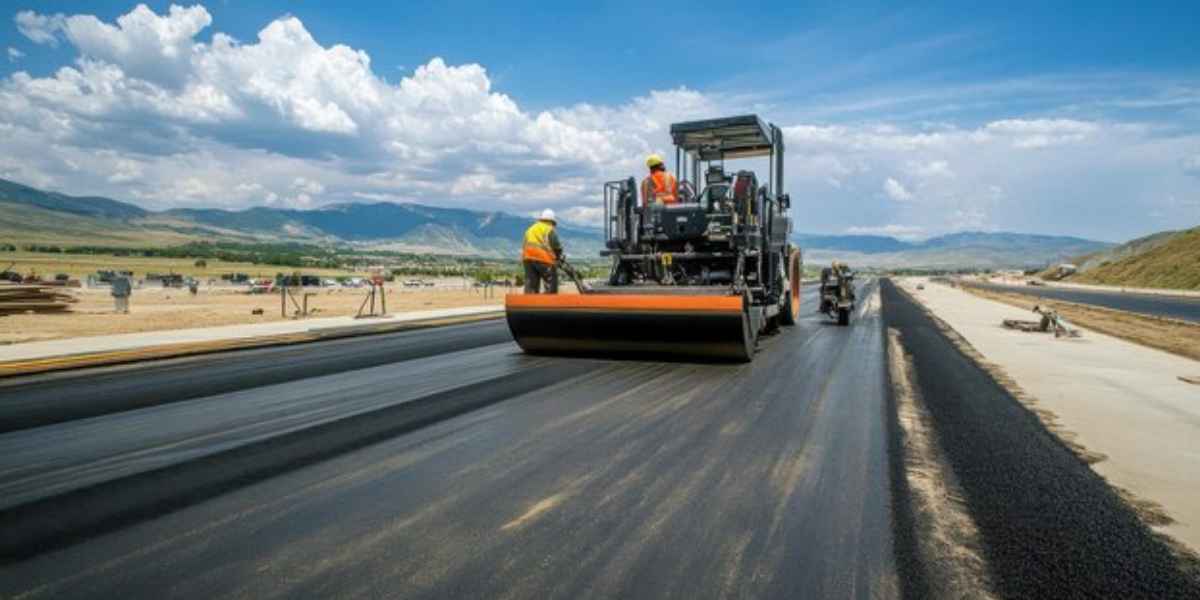
Pavers lay asphalt or concrete in smooth, even layers. The machine spreads and levels material for roads or paved areas.
Accurate paving improves road quality and durability. Pavers are essential for highways, streets, and parking lots.
Key Features
- Conveyor for material feed
- Screed for leveling
- Adjustable width
Applications
- Road surfacing
- Parking lot construction
- Pathways
Cost
Pavers cost between $100,000 and $300,000.
Top Brands
Vogele, Caterpillar, Dynapac
11. Rollers
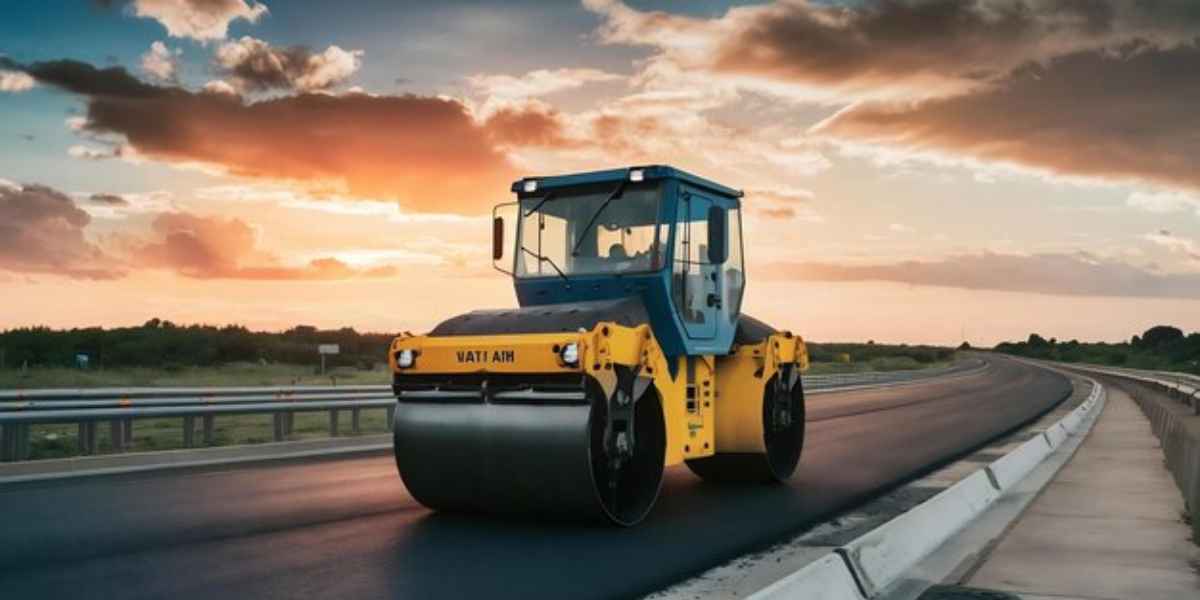
Rollers compact soil, asphalt, or gravel to create solid surfaces. A heavy drum applies pressure for strong compaction.
Compaction increases surface stability and load capacity. Rollers are used in road construction and site foundations.
Key Features
- Steel or padfoot drum
- Optional vibration
- Strong weight for compaction
Applications
- Road building
- Foundation prep
- Landscaping base work
Cost
Rollers cost between $50,000 and $200,000.
Top Brands
Hamm, Caterpillar, Bomag
12. Cranes

Cranes lift and move heavy materials to high or distant points. A long boom gives reach for vertical and horizontal lifts.
Construction projects use cranes for placing steel, concrete, and large parts. High lifting capacity makes them essential on big builds.
Key Features
- Long boom
- Strong lifting system
- Stable base or tracks
Applications
- High-rise construction
- Bridge assembly
- Heavy equipment placement
Cost
Cranes cost between $200,000 and $1,000,000.
Top Brands
Liebherr, Grove, Terex
13. Trenchers
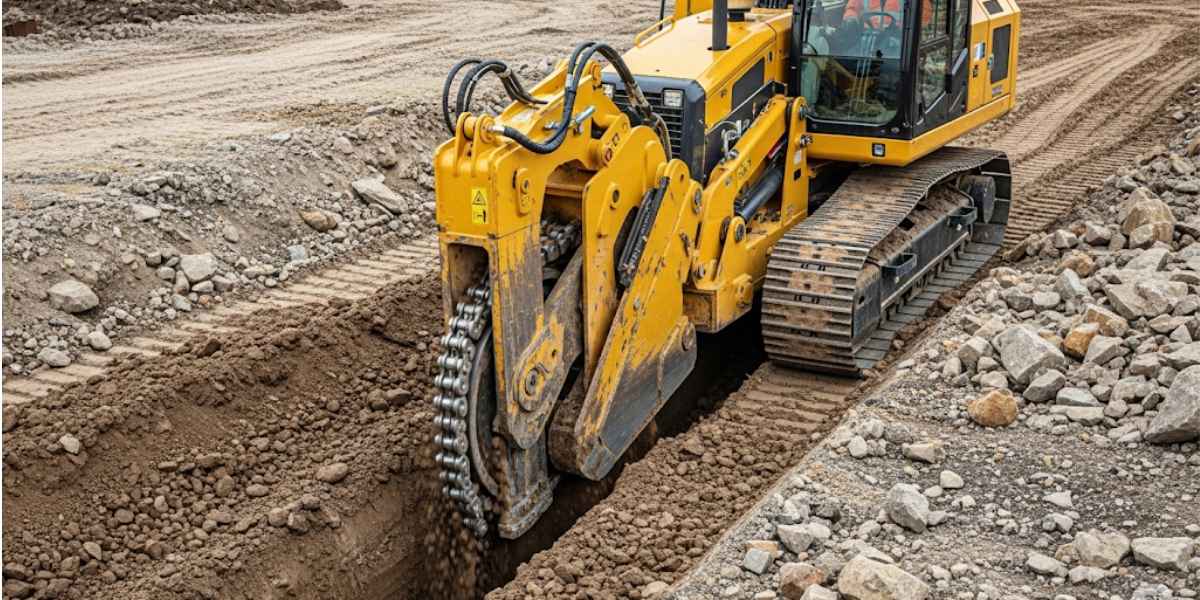
Trenchers dig narrow, straight trenches for pipes or cables. The cutting chain produces clean, even trench walls.
Quick trenching reduces manual labor. Trenchers are common in utility and drainage work.
Key Features
- Narrow cutting chain
- Adjustable digging depth
- Wheel or track base
Applications
- Pipe laying
- Cable installation
- Drainage trenching
Cost
Trenchers cost between $20,000 and $100,000.
Top Brands
Ditch Witch, Vermeer, Barreto
14. Telehandlers
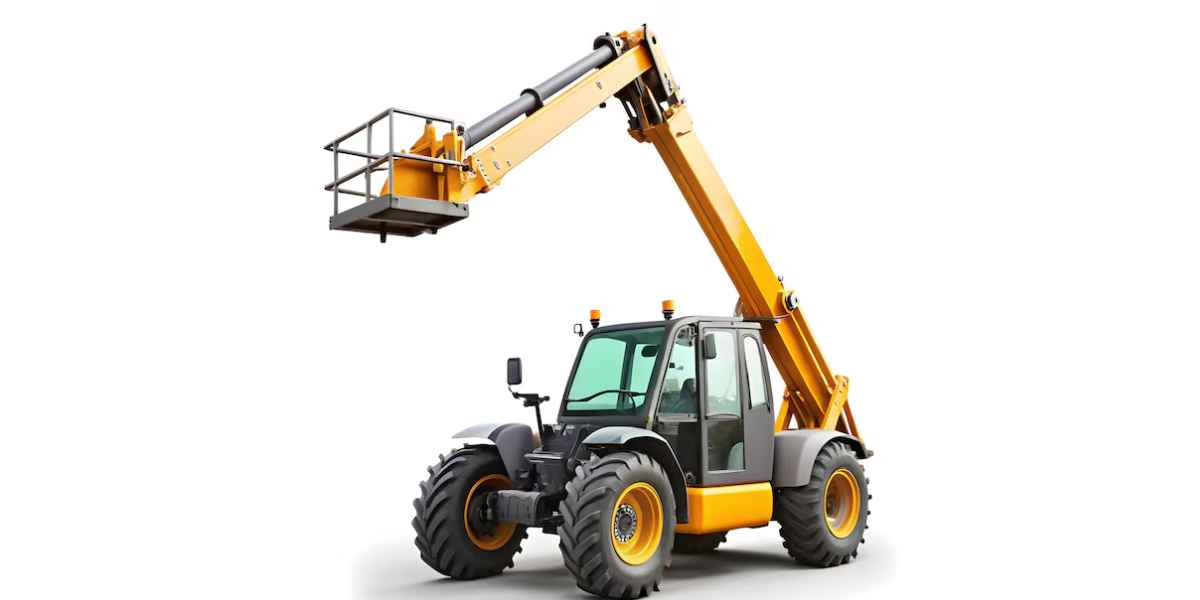
A telehandler uses an extendable boom to lift and place loads at height. The machine combines the function of a forklift and small crane.
Rough terrain tires provide mobility on uneven ground. Telehandlers are useful for loading materials to upper levels.
Key Features
- Extendable boom
- All-terrain wheels
- High lift capacity
Applications
- Material placement at height
- Site loading
- Utility installation
Cost
Telehandlers cost between $70,000 and $150,000.
Top Brands
JLG, Manitou, Genie
15. Concrete Mixers
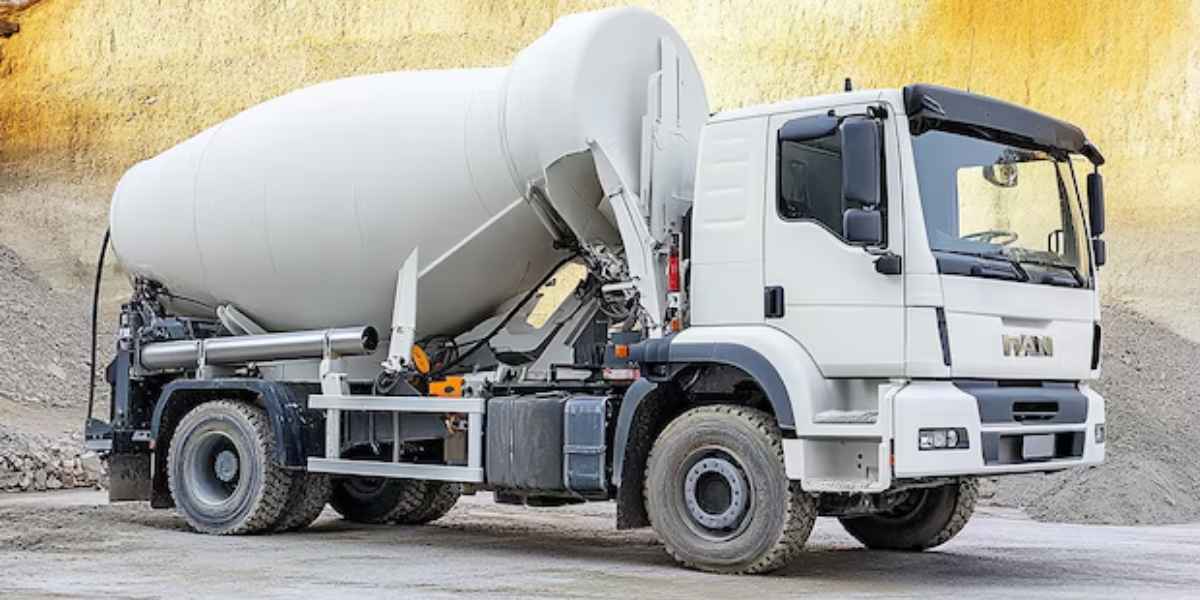
Concrete mixers combine cement, water, and aggregate to produce fresh concrete. A rotating drum keeps the mix uniform until use.
Site mixing reduces delays and improves concrete quality. Concrete mixers are essential for foundation and structure work.
Key Features
- Rotating drum
- Rear discharge chute
- Adjustable mixing speed
Applications
- On-site concrete supply
- Foundation pouring
- Small to medium batch mixing
Cost
Concrete mixers cost between $100,000 and $200,000.
Top Brands
Mack, Mercedes-Benz, Iveco
Heavy Equipment Shipping for Construction Vehicles
Heavy equipment shipping plays a key role in keeping construction projects on track. Moving large machines like excavators, bulldozers, and cranes requires planning, care, and the right equipment.
Transporting construction vehicles safely means choosing a method that matches the size and weight of each machine. The most common options include:
- Flatbed trailers for smaller or standard-sized vehicles that don’t exceed typical road limits.
- Lowboy trailers for taller or heavier equipment that needs to stay low to the ground for clearance.
- Multi-axle carriers for the largest loads where extra axles provide added support and balance.
Shipping construction equipment requires permits, secure loading, planned routes, and insurance. An experienced transport company ensures safe and timely delivery.
How to Manage Construction Vehicle Fleet with Matrack
Matrack offers a complete set of solutions for managing construction vehicles efficiently. These tools help track equipment, control costs, improve safety, and keep operations running smoothly.
Track Vehicles in Real Time
Matrack GPS fleet tracking provides live location data for every machine in the fleet. This helps prevent theft, monitor usage, and ensure equipment stays on site.
Monitor Equipment Health
Engine diagnostics and maintenance alerts help avoid costly repairs. Matrack systems make it easy to schedule service and extend the life of construction vehicles.
Control Fuel and Idle Time
Matrack fuel tracking features identify where fuel is used and wasted. A Matrack fuel card adds control over purchases and helps reduce unauthorized spending.
Manage Routes and Job Assignments
GPS tracking and route optimization support better planning for deliveries and site work. Matrack helps reduce travel time and keeps projects on schedule.
Improve Safety and Compliance
A Matrack ELD device ensures compliance with hours-of-service rules for vehicles that fall under regulations. This helps avoid penalties and improves record-keeping.
Strengthen Visibility with Fleet Dash Cams
A Matrack fleet dash cam provides video evidence in case of accidents or disputes. The footage supports safety reviews and protects the company from false claims.
